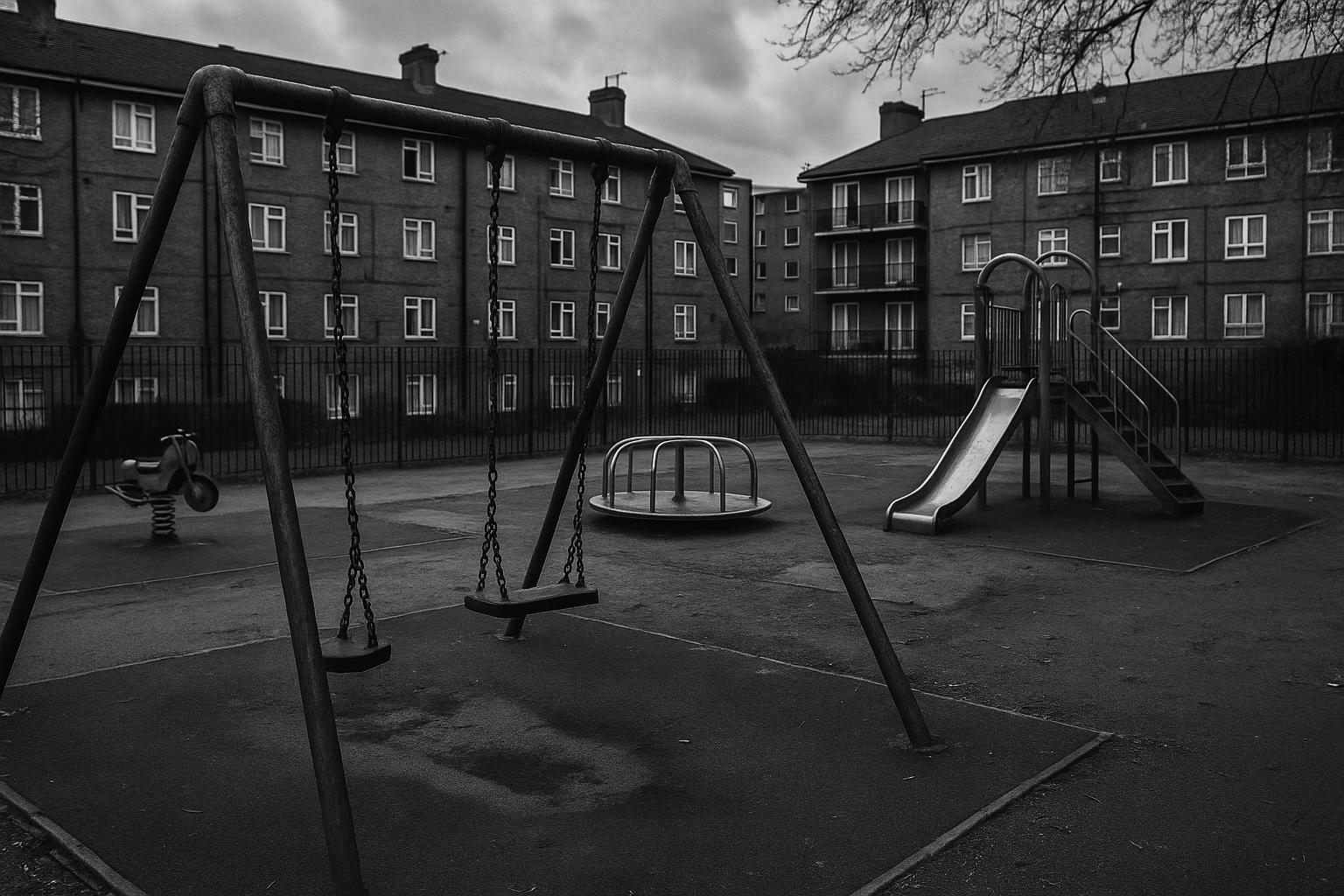London boroughs have voiced strong criticism of the Government’s proposed funding reforms, warning that the new formula drastically underestimates local needs and risks stripping £700 million from children’s services over three years by failing to account for high housing costs and rising demand.
Planned changes to the funding distribution formula for children’s services in England have elicited strong criticism from councils, particularly in London, over concerns that the new approach will drastically underestimate local needs and lead to devastating cuts in vital services. The Government is consulting on reforms to the overall core council funding process, with a significant portion—about a quarter of the £30 billion allocated—earmarked for children’s services through a newly designed formula. However, London Councils warns that this formula risks significant redistribution away from the capital’s boroughs, resulting in losses equating to around £700 million over three years when accounting for all planned adjustments.
London Councils, which represents 32 boroughs, conducted modelling which indicated that if the new children’s services formula were applied unaltered, London boroughs alone would lose £1.5 billion over three years. The greater concern is that the formula fails to adequately factor in key drivers of local need, especially in more deprived areas with high living costs. The National Children’s Bureau’s research supports this view, highlighting that the formula lacks robustness and uses data and metrics that are “not correlated with need.” Crucially, high housing costs—a significant factor in London’s deprivation—are omitted from the data set, potentially skewing allocations away from some of the areas most in need. Variables designed to measure child health and parental education levels have also been criticised for their subjectivity or limited scope, and there are concerns the formula inaccurately assumes demand for children’s services in London has dropped by nearly 40%, despite boroughs recording overspends exceeding £150 million in each of the last two years.
The chair of London Councils and leader of Lambeth Council, Claire Holland, welcomed the Government’s intent to reform council funding but stressed the necessity for a “more accurate approach to assessing local levels of need.” She emphasised that ensuring fair distribution of resources based on actual need is vital to sustaining local services for vulnerable children and young people, remarking, “following 14 years of structural underfunding, restoring long-term financial stability to boroughs and the broader local government sector must be a priority.” James Shutkever, social care programme lead at the National Children’s Bureau, echoed these concerns, urging the Government to refine the formula’s methodology to ensure it is genuinely based on need and capable of supporting families effectively at a time of increased demand.
The controversy over funding allocations comes against a broader backdrop of financial strain and service cuts across local government. According to a recent report, nearly half of English councils reduced spending on family support services, which include family hubs and children’s centres, between 2023-24 and 2024-25, with overall spending dropping by 1.6% in real terms. These reductions pose challenges to meeting government targets aimed at improving school readiness and supporting children’s early development. At the same time, a report by the union Unison warned of a looming £4.3 billion shortfall facing councils in 2025, which could more than double the following year without emergency government intervention. This deficit threatens a widespread local government collapse in England, Scotland, and Wales.
London Councils has urged the Government to ensure that its funding reforms accurately reflect the capital’s high deprivation and soaring service delivery costs. It is noted that London has the highest poverty rate in the country once housing costs are accounted for, which many current deprivation metrics overlook. The organisation has welcomed recent parliamentary recommendations that housing costs must be factored into deprivation measures used to allocate funding, reinforcing the argument that ignoring these costs risks penalising deprived communities in London and other cities. While London Councils has expressed cautious optimism about the Government’s focus on prevention and the announced £250 million additional investment in children’s social care, there remains a clear call to refine how deprivation and need are measured to avoid undermining the sector further.
The Government’s Fair Funding Review 2.0 aims to simplify local government funding and make allocations fairer by better reflecting the spread of need, including for children and young people’s services. The new formula is intended to improve resource allocation across local authorities, but the current proposals have met criticism for their methodological gaps and perceived lack of transparency. London boroughs argue the formula development process has lacked sufficient scrutiny and that further consultation and collaboration are essential to create a funding system that truly supports vulnerable children and families.
As councils face increasing financial pressures and service demands, the stakes of these funding reforms are extraordinarily high. Without accurate, need-based allocations that carefully consider local circumstances like housing costs and service demand realities, vital children’s services risk deep cuts, which could exacerbate inequality and strain the broader social care landscape.
 Reference Map:
Reference Map:
- Paragraph 1 – [1], [4]
- Paragraph 2 – [1], [4], [7]
- Paragraph 3 – [1], [2], [3]
- Paragraph 4 – [4], [5], [6]
- Paragraph 5 – [7], [1]
Source: Noah Wire Services
- https://www.irishnews.com/news/uk/councils-warn-new-funding-formula-will-devastate-childrens-services-57NCASDSZJM53CGQVI3A4SFIWQ/ – Please view link – unable to able to access data
- https://www.ft.com/content/6a66abb6-ac00-4378-ae6c-2070e70a46a8 – A report reveals that nearly half of English councils reduced spending on family support services, including family hubs and children’s centres, between 2023-24 and 2024-25. Of 116 local authorities that responded, 49% reported cuts, with overall spending dropping from £444 million to £437 million—a real-terms decrease of 1.6%. This reduction underscores the challenges in meeting the government’s target to improve school readiness for additional children by 2029. Experts warn that underfunding jeopardises essential support services, impacting educational outcomes and adding strain on schools.
- https://www.ft.com/content/76c5fd20-04da-4651-8740-e52d21d04541 – Councils across Britain are facing a significant £4.3 billion deficit in their finances for the next year, according to a report by Unison. The union warned of a potential widespread collapse of local government in England, Scotland, and Wales without emergency relief from the government. The gap is expected to rise to more than £8.5 billion by the following year. Prime Minister Sir Keir Starmer attributed the financial crisis to the previous Conservative government, creating a £22 billion deficit in public finances.
- https://www.londoncouncils.gov.uk/news-and-press-releases/2025/council-funding-reforms-must-match-londons-deprivation-and-cost-0 – London Councils has emphasised that funding provided to boroughs must reflect the high levels of need and significant deprivation in the capital, as well as the rising cost of delivering local services. The cross-party group welcomed the government’s focus on deprivation but stressed the importance of using deprivation measures that properly account for housing costs. London has the highest rate of poverty in the country once housing costs are factored in, and failing to use accurate measures of deprivation could penalise deprived communities in the capital and other major cities.
- https://www.londoncouncils.gov.uk/news-and-press-releases/2025/local-government-funding-system-fundamentally-broken-london-councils – London Councils has welcomed a new parliamentary report on the financial crisis facing local government. Among its recommendations, the Housing, Communities and Local Government Committee says that reforms to the council funding system should ensure local housing costs are properly accounted for in measures of deprivation used to allocate resources. London Councils has flagged this issue as a major concern, warning that the deprivation measures in the government’s Fair Funding Review 2.0 proposals do not fully reflect housing poverty and risk significantly underestimating levels of need in the capital.
- https://www.londoncouncils.gov.uk/news-and-press-releases/2024/london-boroughs-welcome-steps-reform-council-funding-severe-strain – Responding to the local government finance policy statement, London Councils has welcomed the steps being taken to reform the ‘fundamentally broken’ funding system. The cross-party group is particularly pleased with the government’s focus on supporting services focused on prevention, with £250 million of additional investment coming to children’s social care. The policy statement also promises funding will give more recognition to the impact of deprivation on local service pressures. London Councils welcomes this move and would want to see any deprivation measures taking housing costs fully into account.
- https://www.gov.uk/government/consultations/the-fair-funding-review-20/the-fair-funding-review-20 – The Fair Funding Review 2.0 aims to make local government funding simpler and fairer, helping local authorities meet the needs of their citizens, including protecting and supporting children and families. The review proposes updating the existing funding distribution formula to improve resource allocation for children’s services. The new Children and Young People’s Services (CYPS) formula is part of this work and aims to better reflect how the need for services is spread across local authorities, resulting in a fairer allocation of resources.
Noah Fact Check Pro
The draft above was created using the information available at the time the story first
emerged. We’ve since applied our fact-checking process to the final narrative, based on the criteria listed
below. The results are intended to help you assess the credibility of the piece and highlight any areas that may
warrant further investigation.
Freshness check
Score:
8
Notes:
The narrative is current, dated August 1, 2025. Similar concerns have been raised in recent months, notably by London Councils on June 20, 2025, regarding the government’s consultation on funding distribution. ([londoncouncils.gov.uk](https://www.londoncouncils.gov.uk/news-and-press-releases/2025/council-funding-reforms-must-match-londons-deprivation-and-cost-0?utm_source=openai)) The report appears to be based on a recent press release, which typically warrants a high freshness score.
Quotes check
Score:
7
Notes:
Direct quotes from Claire Holland, Chair of London Councils, and James Shutkever, social care programme lead at the National Children’s Bureau, are included. These quotes are consistent with their statements in the June 20, 2025, press release. ([londoncouncils.gov.uk](https://www.londoncouncils.gov.uk/news-and-press-releases/2025/council-funding-reforms-must-match-londons-deprivation-and-cost-0?utm_source=openai)) The consistency suggests the quotes are reused, which may indicate recycled content.
Source reliability
Score:
8
Notes:
The narrative originates from The Irish News, a reputable news outlet. The information aligns with statements from London Councils and the National Children’s Bureau, both credible organisations. However, the reliance on a single source for direct quotes may limit the breadth of perspectives.
Plausability check
Score:
9
Notes:
The concerns raised about the new funding formula are plausible and consistent with previous reports on local government funding challenges. For instance, London Councils highlighted a £500 million funding shortfall in their June 20, 2025, press release. ([londoncouncils.gov.uk](https://www.londoncouncils.gov.uk/news-and-press-releases/2025/council-funding-reforms-must-match-londons-deprivation-and-cost-0?utm_source=openai)) The narrative’s tone and language are appropriate for the topic and region.
Overall assessment
Verdict (FAIL, OPEN, PASS): PASS
Confidence (LOW, MEDIUM, HIGH): HIGH
Summary:
The narrative is current and aligns with recent reports from credible organisations. While some quotes appear reused, the overall content is consistent with known issues in local government funding. The source is reputable, and the claims are plausible, warranting a high confidence in the assessment.













